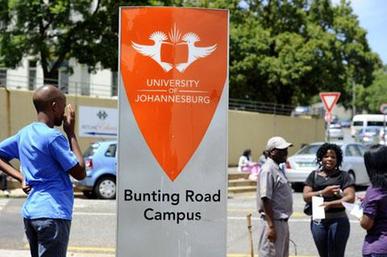
This is the VOA Special English Education Report.
Since the 1990s, education has been required for all South Africans from age seven to 15. Last December, the government announced that 70 percent of students passed their final examination to finish high school. In 2008 the passage rate was about 63 percent. There have been increases each year since then.
Professor Shireen Motala at the University of Johannesburg says access to basic education is no longer the problem in South Africa. She says most children stay in school until they are about 16. The problem now, she says, is that large numbers of them leave without completing high school.
Students take an examination known as the matric in grade 12, their final or "matriculation" year. Professor Motala notes that less than half the children who started school in 2000 sat for the matric last year.
SHIREEN MOTALA: "Only, I think, around 45 percent survived, which means that a large number of children are falling by the wayside. And the concern is that where do those learners actually go to."
South Africa has a 24 percent unemployment rate. Those who drop out must compete with better educated people for jobs.
Educational researchers also point to another problem. They say South African schools do not produce enough students with the skills for higher education in math and science.
One of those researchers is Graeme Bloch. He says many schools are not well-equipped.
GRAEME BLOCH: "The reality of poverty and resources, that children do not see laboratories and as a result, or partly as a result, their science marks are not very good. They do not have libraries at school. Ninety-two percent of the schools do not have libraries."
Also, education specialists say in many cases, teachers and school principals do not have the skills or training to do their jobs. In other cases, they are simply not doing their duty to provide an education.
Professor Motala says a number of teachers were poorly trained during the system of apartheid, or racial separation in South Africa. Apartheid ended in 1994.
Secondly, she says, teachers have been confused by the many educational reform efforts in the last 15 years. And, finally, she thinks language differences in the classroom have not gotten as much attention as they should.
SHIREEN MOTALA: "There is the big issue of language, which we have not taken enough cognizance of, which I think is a huge problem."
Subjects such as math and science are taught in English starting at about age 10. But South Africa has eleven official languages and many more unofficial ones.
South Africa's minister of basic education promises a number of improvements. Angie Motshega says teacher development efforts will focus on subject and content knowledge, and making sure the correct teachers are in the correct jobs.
And that's the VOA Special English Education Report. I'm Bob Doughty.
matriculation: 入学考试;大学入学许可;录取入学
cognizance: 认识,认知;认识范围
Facing America's high dropout rates
Get more students to finish high school
Interest grows in international high schools in US
EDUCATION REPORT - School Population Growth
(来源:VOA 编辑:Rosy)
关注和订阅


电话:8610-84883645
传真:8610-84883500
Email: languagetips@chinadaily.com.cn